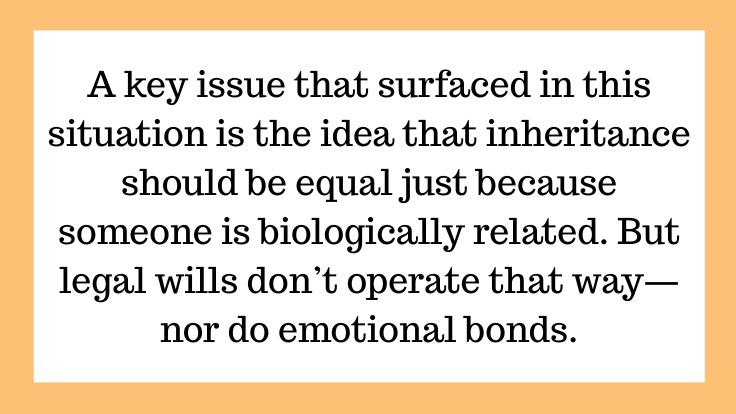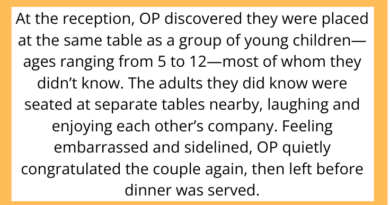Am I the Jerk for Refusing to Share My Inheritance with My Half-Siblings?
When money and family mix, things can get messy—fast. Especially when inheritance is involved and family ties aren’t so simple. That’s the situation one Reddit user found themselves in when a large inheritance came their way, only to be met with guilt-tripping and resentment from half-siblings who weren’t included in the will.
This AITAH story dives deep into the murky waters of blended families, financial expectations, and whether blood alone earns someone a share of your legacy.
The Backstory: One Father, Two Families
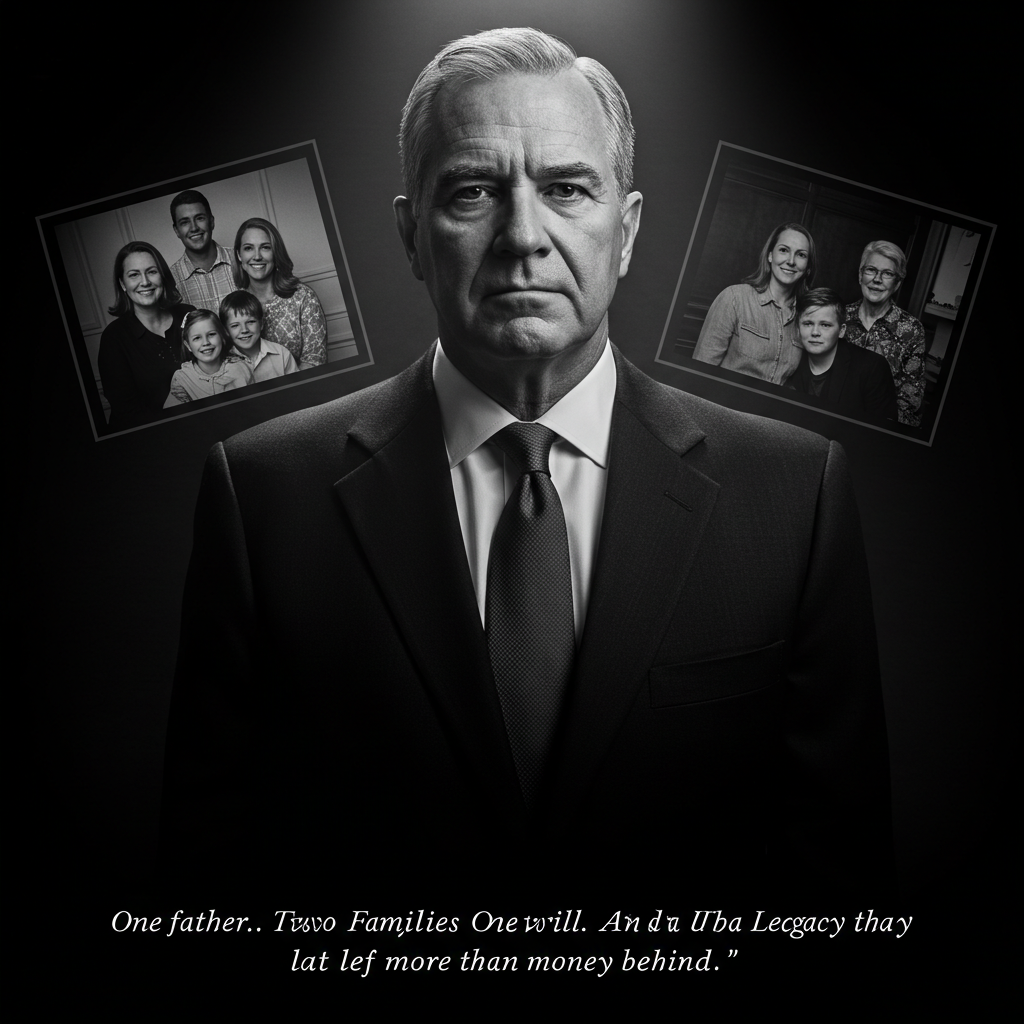
The Original Poster (OP) shared that their father had two families: one with OP’s mother, and later, a second marriage where he had two more children. OP grew up primarily with their father after the divorce, while the half-siblings stayed with their mother. Over the years, OP had a strong relationship with their dad, while the half-siblings were distant and rarely visited.
When the father passed away, OP was shocked to find out they were the sole beneficiary of his will. Everything—house, savings, retirement accounts—was left to OP. The half-siblings received nothing.
Things escalated when the half-siblings confronted OP, demanding a share of the inheritance, saying “he was our dad too.” OP refused, citing the will and their years of being the primary caregiver and emotional support for their father.
Now OP is wondering: Am I the jerk for not sharing my inheritance with my half-siblings, even though we have the same father?
Family Ties vs. Emotional Bonds: What Defines ‘Fair’?

Inheritance Is Often Based on Relationships, Not Just Biology
A key issue that surfaced in this situation is the idea that inheritance should be equal just because someone is biologically related. But legal wills don’t operate that way—nor do emotional bonds.
OP’s relationship with their father was close, constant, and supportive. The half-siblings, while biologically connected, rarely saw him and had little involvement in his life, especially in his final years.
Many Redditors noted that inheritance is often a reflection of where love, care, and loyalty lie—not just blood ties.
Estranged Relationships Don’t Guarantee a Cut
If someone is estranged from a parent—whether by choice or circumstance—they’re not automatically entitled to an equal share of inheritance. It might sound cold, but it’s a reality many families face.
In this story, the father made a conscious legal decision to leave everything to the child who stood by him. That’s not cruelty. That’s clarity.
The Guilt Complex: Should You Feel Obligated to Share?
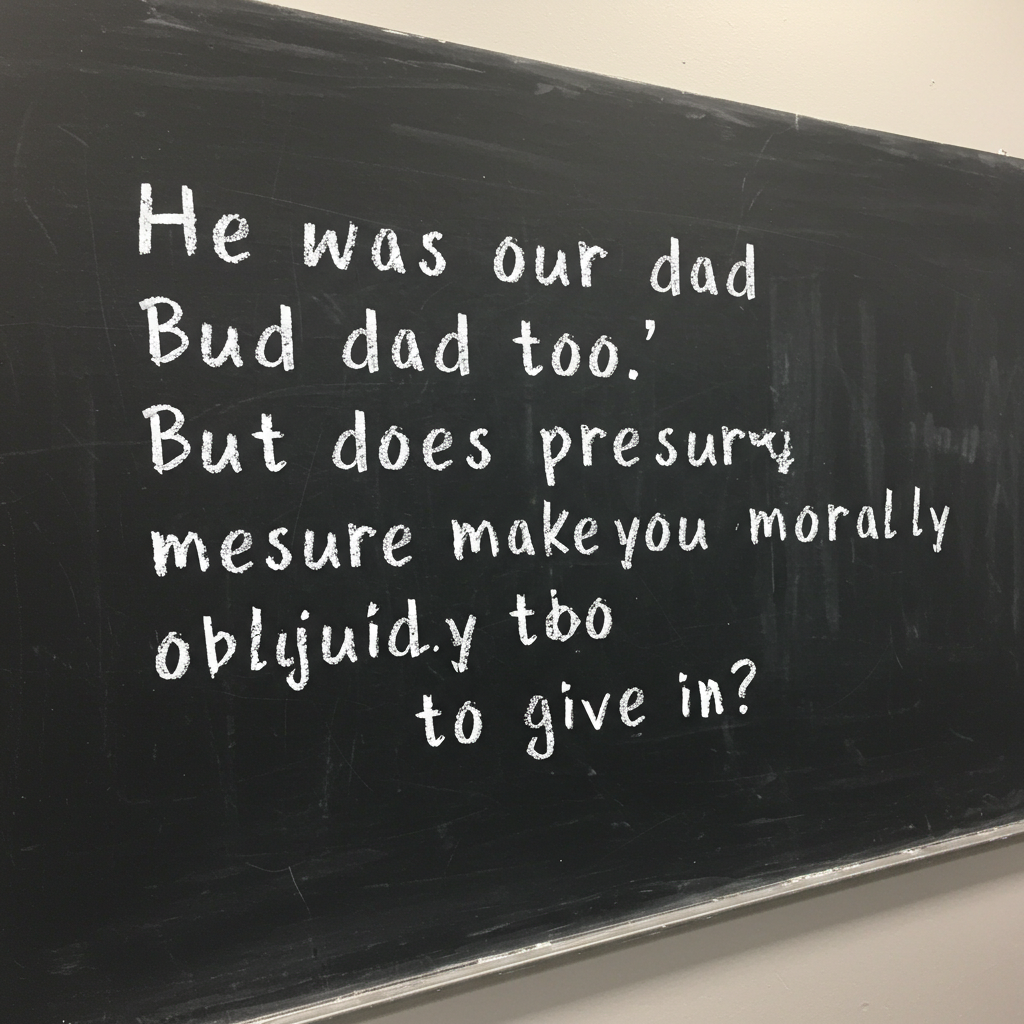
Family Pressure Doesn’t Equal Moral Obligation
After OP refused to split the inheritance, the half-siblings called them selfish, and other extended family members chimed in, saying things like “he would have wanted you to share” and “you’re tearing the family apart.”
But is it OP’s responsibility to divide what was legally and intentionally left to them?
Reddit’s consensus: Absolutely not.
When someone makes a legal will, it’s often the final expression of their wishes. Overriding those wishes out of guilt or external pressure undermines their intent.
Sharing Can Set a Dangerous Precedent
Let’s say OP had agreed to split the money. What then? It could set a precedent that no matter what a parent wants, the survivors will divvy things up as they see fit.
While generosity can be admirable, it should come from the heart—not manipulation or emotional blackmail.
Legal vs. Ethical: Navigating the Moral Gray Area

The Will Was Clear—So Why the Drama?
One of the major takeaways here is that the will was legally sound and clearly stated. There were no loopholes or ambiguities. The father left everything to OP with intent.
Ethically, some might argue that fairness matters more than legal documents. But fairness is subjective. In OP’s eyes, fairness was about honoring a relationship, not splitting money with people who were practically strangers.
A Possible Middle Ground?
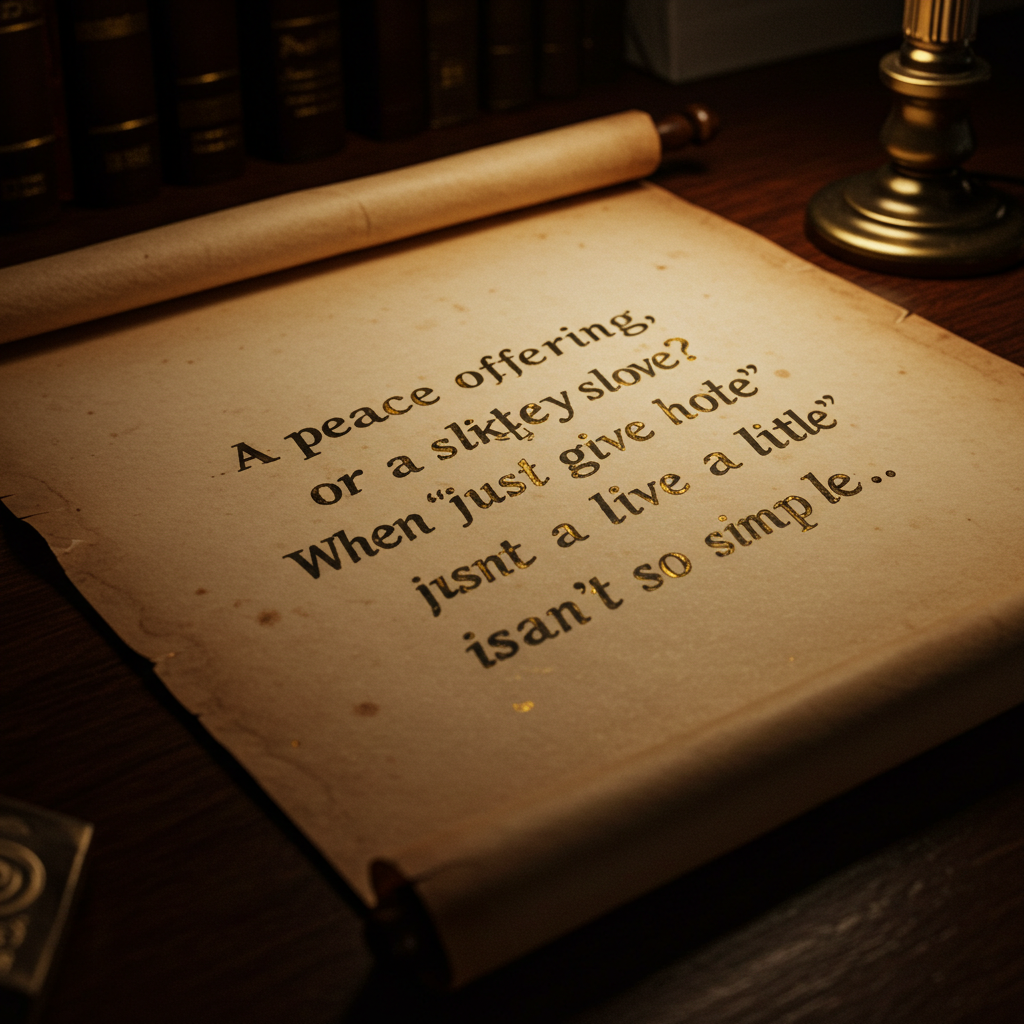
Some commenters suggested that OP could consider a goodwill gesture—like giving a small amount or family heirloom—as a symbolic peace offering.
While this isn’t legally necessary, it could be a way to maintain family ties, especially if OP wants to keep communication lines open in the future.
But again, that’s a choice—not a requirement.
What the AITAH Community Said

Reddit’s judgment was loud and clear: Not the jerk.
Here are a few standout comments:
-
“You were there. You were his child in every way that mattered. That inheritance is yours.”
-
“If they wanted a relationship—and a share—they had years to build it. They didn’t.”
-
“Don’t let guilt rob you of what your father wanted for you.”
Many users also pointed out that family members often feel entitled to money they had no role in earning, managing, or preserving. OP’s father made a choice—and OP is under no obligation to undo it.
Final Thoughts: You’re Not the Villain for Respecting a Will
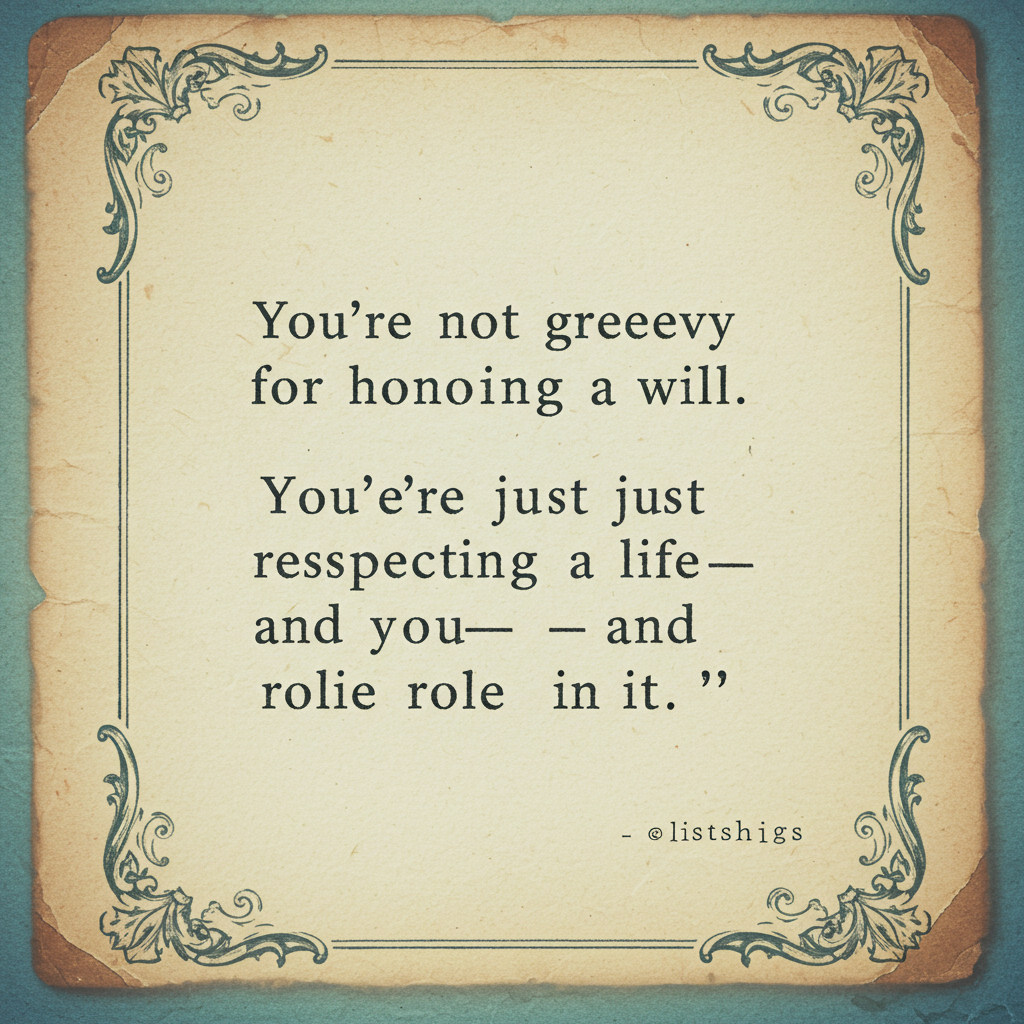
Inheritance can tear families apart—but it doesn’t have to. The real culprit isn’t money—it’s entitlement, miscommunication, and unresolved resentment.
In OP’s case, their father made a clear decision. The law supported it. The emotional relationship supported it. And the AITAH community agreed: You’re not wrong for honoring that decision.
There’s no shame in protecting what was left to you, especially when it reflects years of love, sacrifice, and support.
